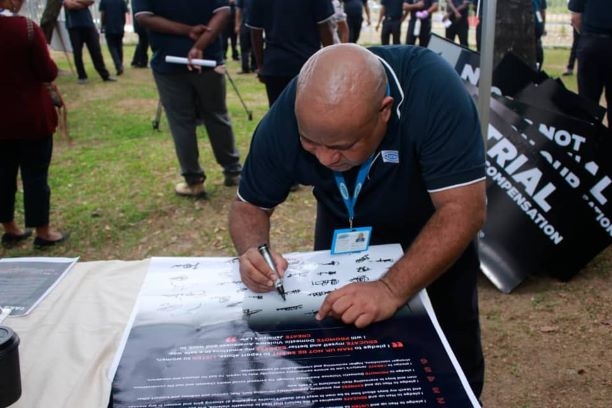When news emerged of 20-year-old Jenelyn Kennedy’s death in Port Moresby in late June, Papua New Guineans and people across the region were horrified. Jenelyn’s youth, the horrific circumstances in which she died—allegedly after six days of beatings and torture, and the fact it came just weeks after another high-profile domestic assault of a PNG sports star, all fuelled extraordinary coverage of her death. The National newspaper published a harrowing image of Jenelyn’s body, with reporter Rebecca Kuku explaining that it was important to show readers what she (Jenelyn) had been through. “Her story needed to be told, as a reporter, a woman, a mother, a sister, I failed to be her voice when she was alive and I’d be damned if I would fail her now in her death,” Kuku wrote.
Horrified Papua New Guineans walked from Parliament to Sir John Guise stadium in a “Walk for Jenelyn” followed by a “shine the light” vigil. Solidarity marches took place in other provincial centres. Her partner Bhosip Kaiwi has been charged with wilful murder and is now in custody. Questions have been raised about the responsibilities of doctors and police officers and others living in the house Jenelyn and Kaiwi shared, who were aware of her treatment.
Sadly her story is all too common.
